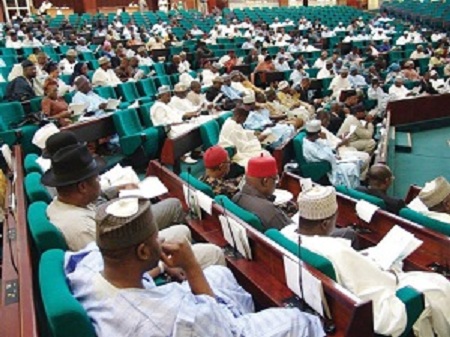BudgiT, has decried the recurring issue of insertions and variations of the Nigerian annual Appropriation Act by the National Assembly.
In its latest report ‘Policy Brief’ BudgIT examines the recurring issue of the insertions and variations of the Nigerian annual Appropriation Act by the National Assembly.
In particular, the brief assesses the last two Appropriation Bills and Acts of the 2021 and 2022 financial years. Providing an evaluation of the nature, amounts and government ministries involved in these insertions. The brief also reveals the opportunity cost of the insertions, which result in the diversion of funds meant for developmental projects.
“This is in addition to the problem of usurpation of the responsibility of subnational units and the clear breach of transparency and due process.
“Considering examples from other jurisdictions, the brief highlights that the Nigerian situation must nonetheless be context-sensitive, as the quality of governance in other countries that allow for a variation of the budget is better, according to standard metrics.” BudgIT noted.
The brief concludes with the urgent need to settle the matter of the unclear wording of the Constitution and recommends, among other things, that technology is a viable tool that can assist with the reduction of the insertions, but political will is always needed.
The report read in part, “The review of the annual budget by the National Assembly is one of the most important stages of the budget process, as this is ideally expected to reflect the inputs of citizens in the budget through their elected representatives.
“However, the practice in recent times has signaled an arbitrary expression of the Powers of the Purse granted to the National Assembly by the Constitution, as legislators perennially flood the budget with vague, frivolous, and constituency-like projects during the process of the annual budget review.
“Overall, while the 2021 approved budget contained 19,017 capital projects, the 2021 proposed budget contained 13,416 projects, signaling that 5,601 capital projects were added to the Appropriation Bill during the review of the Bill by the National Assembly.
“Similarly, in 2022, and alluded to by the President during the signing of the 2022 Appropriation Act, BudgIT observed that 6,462 projects were inserted by the National Assembly across 37 Mother Ministries and 340 MDAs. Cumulatively, the monetary value of the National Assembly insertions in the 2022 Appropriations Act was N910.37bn (which is 22.07% of the total capital expenditure for 2022).
“A critical look at the nature of insertions for the years under review, 2021 and 2022, revealed that the majority of the insertions are projects that ideally should be the responsibilities of subnational governments (state and local governments).
“Furthermore, despite the fact that the Executive had earmarked N100bn for Zonal Intervention Projects (ZIPs)—also known as constituency projects, nominated by the 365 Federal House of Representative Members and 109 Senators…
“BudgIT identified, as part of the insertions, 1,581 “Federal Constituency” projects in the 2021 Appropriation Act and 1,834 “Federal Constituency” projects in the 2022 Appropriation Act valued at N105bn and N137.07bn respectively.”
This brief has outlined the nature of budgetary insertions and how they take money away from crucial developmental projects. This means that scarce resources millions of Nigerians require for the improvement of their livelihoods are further frittered away.
According to BudgIT, due to the fact that not only Ministries but actual arms of government are involved, solutions to this problem would require effort on the part of all stakeholders: Civil Society, the Media, the International Community and the government itself. \
“More importantly, Nigeria is approaching the end of the term of the current administration, meaning that whoever takes over in 2023 ought to be presented with the urgency of the situation in order to possibly ride the wave of changes that tend to come with new administrations.
“Citizens and Civil Society must be made an indispensable part of the budgeting process and must have their questions and comments attended to: Using the example of subnational units that have achieved some measure of inclusion with ‘Citizen’s Budget Hearings’,
“BudgIT is of the view that such participation is fundamental. Citizens and Civil Society deserve to be carried along in the Approval stage, as their questioning of the Appropriation Bill (and clarification of the reason for the budget insertions by the National Assembly) may prevent the insertions from happening in the first place.
“This inclusion must be timely and designed in such a way that the inputs of citizens and Civil Society is taken into consideration and decision-making by the National Assembly.









Comment here